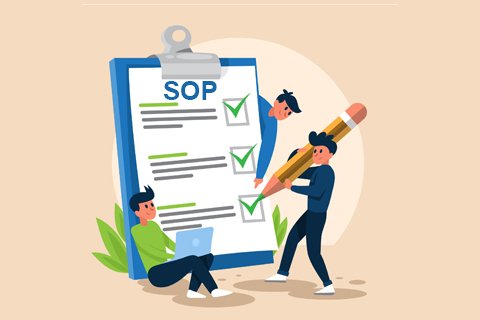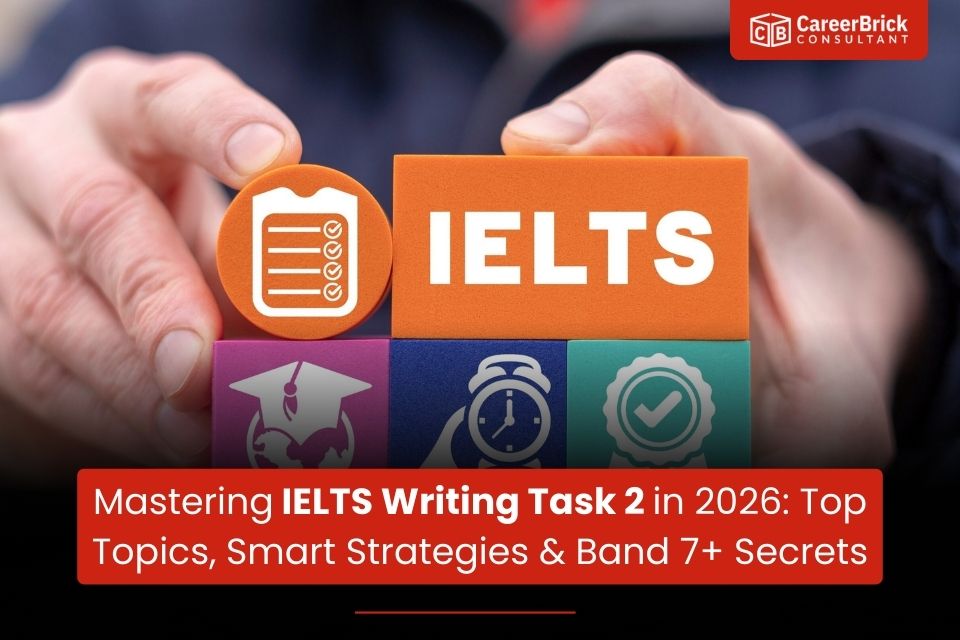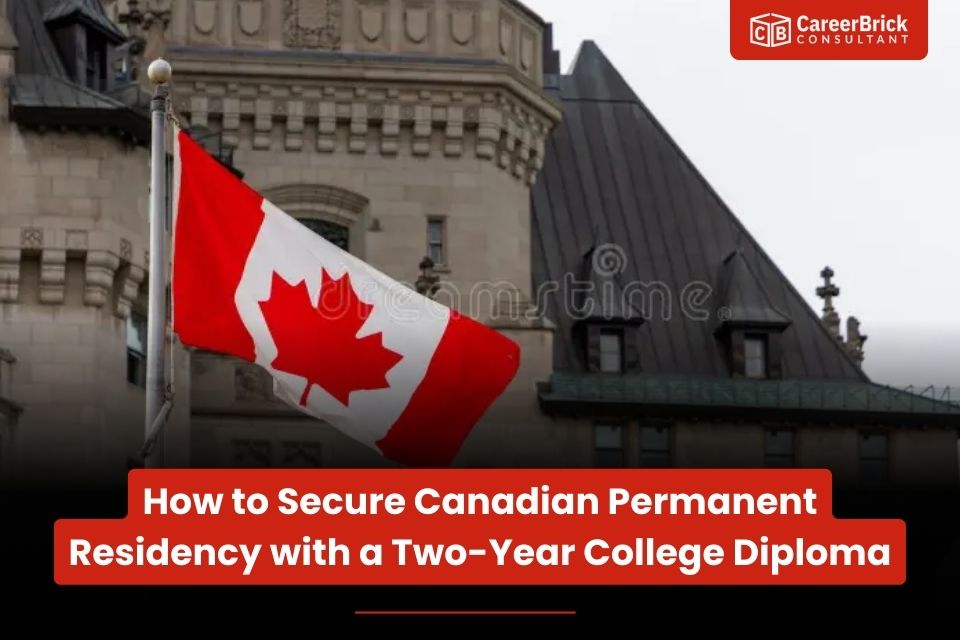Let's be honest, writing a Statement of Purpose (SOP) can be a difficult task. You may believe that this is the easiest step, but it is the toughest part of your visa application process. After all, it is your opportunity to explain why you want to attend your favorite university and how you are a good fit for them — a single piece of paper that can make or break your graduate school application. If you want to stand out from the crowd of students applying for your course, an SOP can play a huge role. As you board on the journey toward higher education, this one document stands between you and your dreams. The stronger your SOP is, the more likely your application will be accepted by your dream university.
Let's delve into the key aspects of a Statement of Purpose to gain a comprehensive understanding of this important document —
What is a "Purpose?"
The purpose is the life force that animates our actions and gives meaning to our pursuits. It is the beating heart of every great endeavor, the driving force that propels us toward our goals and empowers us to overcome even the most daunting challenges. Basically, the purpose is the fuel of human potential that drives us forward and inspires us to achieve great things.
What is a Statement of Purpose?
A Statement of Purpose functions as a window into your character, illuminating your personality and motivation for pursuing advanced education. If you are taking a step further and applying for graduate school, a statement of purpose is the most important piece of paper filled with a sense of purpose and determination.
What's your purpose in a Statement of Purpose?
You sit down and open your laptop, ready to pen down your statement of purpose, but you don't know where to start, "What is my purpose?" you ask.
Now, the purpose is yours to find; all we can do is help you craft an eye-catching SOP in a way that will compel the reader to accept your application. Here’s what you need to know about it.
Tell your Tale
The first impression is the last impression, or so we have heard, and it is, in fact, true. Your SOP should have a clear beginning. You can start with a childhood memory or any incident that motivated you to study in the selected program. Don't hold back. Start with a hook that will grab the reader's attention and make them want to keep reading. Maybe it's a personal story, a surprising statistic, or a mind-blowing fact that relates to your field of study. Whatever it is, make it count. Sum it up with what you've learned so far and what is lacking, which would make the reader think that the selected program is the continuation of your previous pursuits. But above all, be yourself. Don't try to be someone you're not. Here are some examples to help you out.
- “As an undergraduate, I was deeply fascinated by the principles of quantum mechanics, and it was this passion that led me to pursue a degree in physics. However, I soon realized that I wanted to explore this subject even further, and that's why I'm now applying to your esteemed graduate program in theoretical physics. Through this program, I hope to delve deeper into the complexities of quantum mechanics and contribute to groundbreaking research in this field.”
- “My interest in public health began when I volunteered at a community center in a rural village in India. Witnessing firsthand the devastating impact of preventable diseases on vulnerable populations ignited a fire within me to pursue a career in this field. I'm now eager to take the next step and pursue a graduate degree in public health to gain the knowledge and skills needed to make a tangible difference in global health outcomes.”
- “Growing up in a family of lawyers, I was always fascinated by the power of the law to effect change and promote justice. However, it wasn't until I interned at a legal aid clinic that I realized my passion for criminal law. The experience of helping individuals who couldn't afford legal representation sparked a deep desire within me to become a criminal defense attorney. I'm now excited to apply to your law school's criminal law program to pursue this dream and work towards promoting fairness and equality within the legal system.”
- “As a child, I loved nothing more than spending hours exploring the outdoors and observing the beauty of nature. This passion for the environment only grew as I got older, and I became acutely aware of the pressing need for sustainable solutions to combat climate change. It's this passion that drives me to apply to your environmental science program, where I hope to gain the knowledge and tools needed to contribute to the development of innovative solutions for a more sustainable future.”
Talk about your Previous Education/Work Experience
Highlight your academic accomplishments, including your GPA, relevant coursework, research experience, and any publications. Emphasize how your academic background has prepared you for success in your chosen field of study. For instance, you have a bachelor's degree in business but want a specific understanding of the matter of Human Resources, or you have been working as a Marketing analyst and now wish to broaden your knowledge of the sector and learn skills such as leading projects, managing a team, and developing new marketing strategies. Paint a picture with your words. Use descriptive language and reveal the quirks, passions, storytelling techniques, and experiences that make you a rare and valuable addition to their academic community. Show the admissions committee the distinctive qualities that set you apart from the rest of the pack.
The focus should be more on getting international exposure! Leave a lasting impression. Remind the committee of your strengths and explain why you're the perfect fit for their program. This is your chance to tie everything together. Show some humility and express your eagerness to learn and grow.
Highlight your Personal Qualities
Discuss your personal strengths and qualities that make you a strong candidate for studying abroad, such as your curiosity, adaptability, and open-mindedness. Use specific examples to demonstrate these qualities. Discuss how your sense of will to develop yourself at every point in your life made you who you are today. How Participating in different school and college activities helped you hone your skills.
Extracurriculars!
Matters. A lot. Have you done any volunteering or fundraising? Which would benefit your marketing career, or you would enjoy tutoring small kids, which would help your understanding of the teaching pitch. Do you have a blog where you write business or cooking-related articles?
Trust me, anything would work. Participating in extracurricular activities not only adds flavor to your academic profile but also establishes that you are a multidimensional individual who is not limited to the monotony of books and lectures.
Take a Plunge into the particulars of the Course, College, and Country.
It is certainly important for you to know what and where you are going to study. Thus, perusing the curriculum page and identifying modules that can augment your knowledge and bridge any existing gaps is compulsory. Researching the program and its esteemed faculty members is equally important in how it helps to align your research interests and career aspirations. Show that you deeply understand the program and explain why it is the best fit for you.
Likewise, do mention why you have chosen a specific college, keeping in mind that your program is also offered by several other universities. The question is: “What makes your chosen university stand out?” The pointers can include
- Project or Dissertation modules.
- Professor whose work you admire.
- The program has pathways of your interest.
- The course content has exclusive subjects.
Emphasize cultural exchange
It is actually a beautiful practice that involves the sharing of ideas, values, customs, and experiences among individuals from different cultural backgrounds. You need to discuss how studying abroad will broaden your perspective, increase your cross-cultural understanding, and enhance your personal growth. Show how you are excited to learn from and contribute to the international community. This will definitely expand your view and deepen your understanding of different cultures, allowing you to see the world through a wider lens. These skills will serve you well in all areas of life. Whether it is exploring the intricacies of a new cuisine, delving into the rich tapestry of history from a fresh perspective, or immersing in the melodic sounds of a foreign tongue, cultural exchange has the power to transform us, awakening new ways of thinking and forging connections that transcend borders and boundaries.
So go ahead, add it to your SOP, embrace the wonders of cultural exchange, and discover the riches that await you on this incredible journey to study abroad.
FUTURE GOALS!
The following section is of paramount importance, perhaps even more, with the other aspects we have discussed. It centers on your research interests and career aspirations and serves as a key platform to convey your plans after completing your study program. In this section, it is crucial to explain not only the reasons behind your interest in the topic of your study but also how it aligns with your long-term career goals. Suppose you intend to return to your homeland — this is a chance to highlight the richness and diversity of your country's cultural heritage and how your upbringing has motivated you to contribute to your society, drawing upon the knowledge and skills you've acquired through your international experiences.
This point is an opportunity to showcase your passion for your chosen field and how you plan to leverage it to make a difference in the world. Mention some job positions you wish to work in and companies that you have always desired to work for. After all, that is why you have been putting your nose to the grindstone. Leave no stone unturned.
Conclude your SOP
Good work so far; we are almost there. Your statement of purpose should end with a strong conclusion summarizing your main points and reiterating your enthusiasm for the program. We all know that the ending of any piece of writing is important because it leaves a lasting impression on the reader. It is your final opportunity to make a compelling statement of purpose, convey a key message, or evoke a particular emotion. In your case, get Visa approval. A powerful ending brings all the elements of your story together, leaving your reader with a sense of satisfaction. On the other hand, a weak or abrupt ending can leave them feeling unfulfilled or confused. So, make sure to wrap up your story effectively to leave a lasting impression on your audience.
Emphasize how the program will help you achieve your goals and contribute to the field, and end with a call to action or a reflection on what you hope to gain from this experience. To highlight, let me provide you with some examples:
- "And with the knowledge and skills gained from this program, I am confident that I can make a meaningful impact in my field, and contribute to a brighter future for generations to come."
- "And as I reflect on my journey so far, I am more determined than ever to pursue my passion and make a positive difference in the world."
- "And with the support of this esteemed institution, I am excited to embark on a new chapter in my life, one that holds boundless opportunities for growth and success."
- "And with a renewed sense of passion and purpose, I am excited to apply the lessons learned in this program to my future endeavors, and make a meaningful impact in my field."
CONCLUSION
As I bring this piece to a close, I’ll keep it small and brief. Crafting a Statement of Purpose can be a daunting task, but with the right approach, it can also be a gratifying one. Remember to structure your SOP effectively, summon your creative powers to paint a vivid canvas of your exceptional experiences. Don't hold back in using expressive language to infuse life into your story, and most importantly, stay true to your authentic self. With these key principles in mind, you can transform your statement of purpose into a compelling narrative that will capture the attention of any admissions committee. Some extra pointers to keep in mind:
- Be honest: About your strengths and weaknesses, and demonstrate your willingness to learn and grow.
- Proofread carefully: The statement of purpose is a reflection of your writing abilities, so be sure to proofread carefully and ask for feedback from others.
- Follow Instructions: Double-check that you have followed all the instructions and requirements for the statement of purpose, including the word count, formatting, and submission process.
- Finally, stay positive, confident, and focused.
Well, there you are. Good luck with your application!







